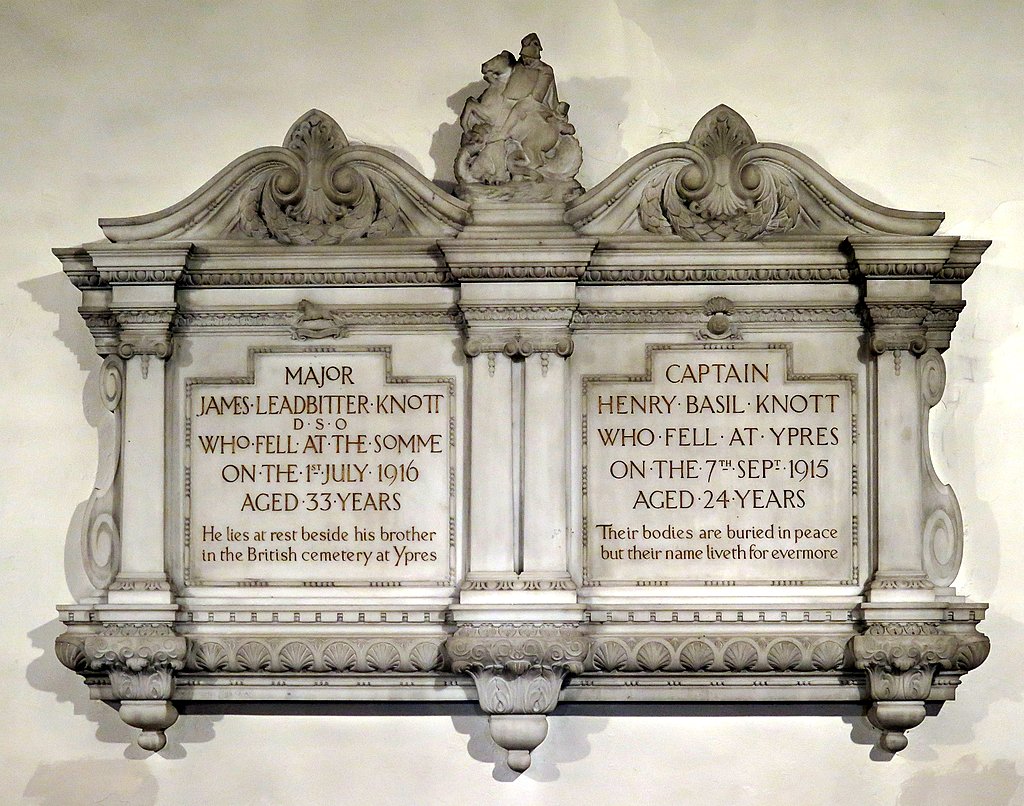His younger brother, Captain Henry Basil Knott of the Northumberland Fusiliers, referred to as ‘Pomp’, had died from wounds received at Ypres Salient, in the previous September (1915).
The letter was reproduced in the local newspaper after the death of Sir James Knott in 1934 with the headline, One of the Most Moving Letters Ever Written.
1 July 1916
If you are reading this letter it means that this war has demanded the extreme sacrifice from me, and my object in writing is to bring you, as far as I can, some measure of consolation and courage and patience to bear your sorrow.
It is not in any sense a message from the grave because whatever I may or may not doubt, I have very complete faith in the Life Eternal.
I know that I will be with you when you are reading this, and I want you to realise, and always remember that, although Providence has decided that I may not return to you in the flesh, that I shall be always with you in spirit sharing your joys and sorrows.
I feel compelled by my knowledge of you both to write this, because my own great anxiety at the present time is the thought of your grief, and the possibility of your collapse if I follow ‘Pomp’.
Momentous events are looming up and I have a premonition that I may not return to you. I have been dreaming of Basil recently, and I have an indistinct recollection of a letter in Basil’s handwriting dated June 1916, which I feel is his warning and message. If I am correct then you will both know Basil and I are happy.
I hope and desire above all things that you will not unduly grieve. You must not think harshly of me for refusing to accept safe employment, even if my action results in my death and your sorrow. We have all to show courage – those out here facing the music and taking what comes in a stoic manner – those at home facing the loneliness that must follow the casualties of severe fighting.
I do want you to know and to realise how deeply and whole heartedly I have appreciated and loved you both for your unselfish devotion and all-forgiving love. My life has been one uninterrupted period of all that a man could wish for or desire. If I die now I am content to do so. Life is sweet, and holds out all that a young man could desire – power, wealth and above all, great love, but I want you to know that I faced the future fearlessly, and that I was cheerful and satisfied.
My medals are yours but I should like them destroyed when you both join me – whenever that may be.
Always remember that I am relying upon you both to be good brave parents, and that I can only be really happy in a new life if I know and can see that you are happy too.
My clothes, furniture and motor car must all be immediately disposed of, everything which reminds you of my death must be removed – this is my urgent desire and wish.
God grant that you will be given good health, strength and happiness for many years.
Your devoted son,
JIM



 RSS Feed
RSS Feed
